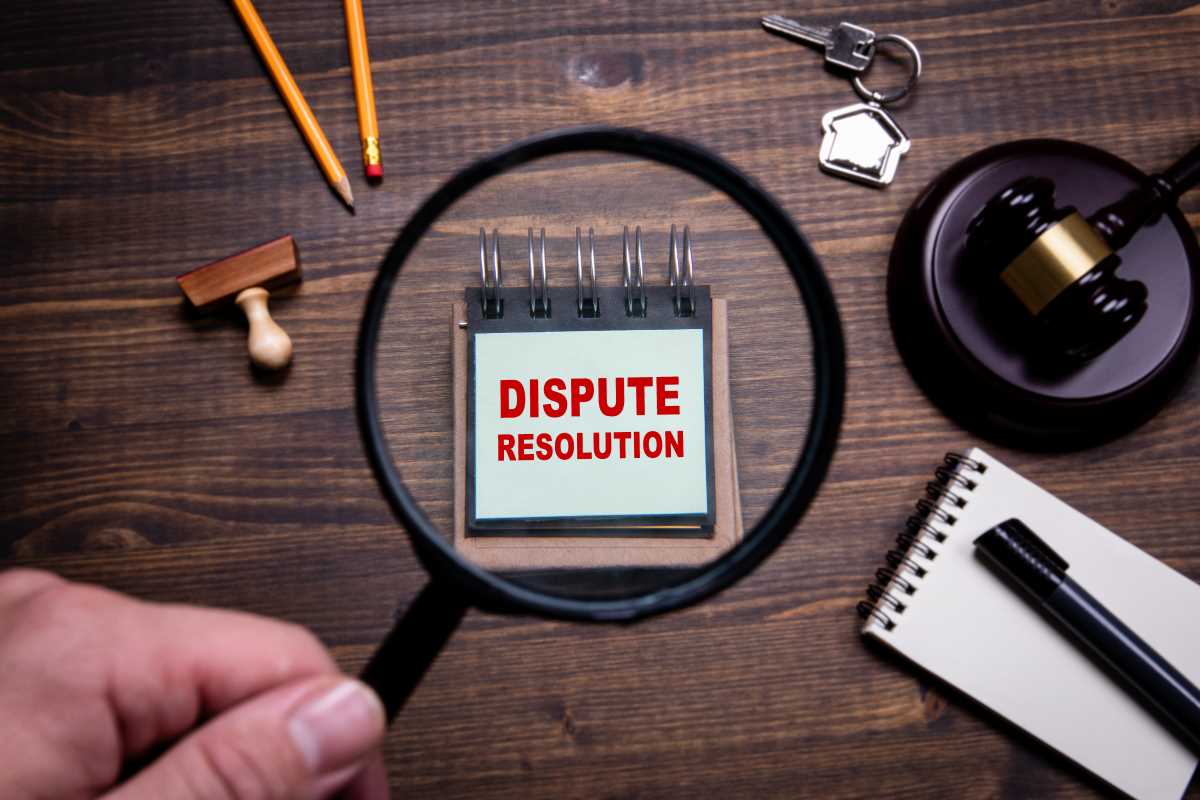Debt collection harassment is a serious problem that affects millions of individuals each year. When you're already facing financial difficulties, the added stress of aggressive debt collectors can feel overwhelming and invasive. In some cases, collectors can cross the line from lawful actions into harassment, causing emotional and psychological harm. Fortunately, legal strategies are available to protect yourself from unfair and harassing tactics.
Strict regulations under federal law govern debt collectors, specifically the Fair Debt Collection Practices Act (FDCPA), which lays out what debt collectors can and cannot do when trying to collect a debt. Understanding your rights under this law is the first step toward stopping harassment and taking control of the situation.
In this article, we will explore various legal strategies you can use to stop debt collection harassment and assert your rights when faced with aggressive collectors.
Know Your Rights Under the Fair Debt Collection Practices Act (FDCPA)
The Fair Debt Collection Practices Act (FDCPA) is a federal law designed to prevent harassment and abuse by debt collectors. Under this law, debt collectors are prohibited from engaging in a variety of unfair or deceptive practices. Some of the key provisions of the FDCPA include:
Harassment and Abuse: Debt collectors are prohibited from using threats, profane language, or abusive tactics to intimidate you. This includes calling repeatedly to annoy or harass you, using threats of violence, or making false claims about the legal consequences you may face if you don't pay.
False or Misleading Statements: Debt collectors cannot make false or misleading statements to collect a debt. For example, they cannot falsely claim they are attorneys or government officials, threaten to seize your property if they have no legal right to do so, or suggest that you will face criminal charges for failing to pay a civil debt.
Unfair Practices: Collectors cannot engage in practices that are considered unfair. This includes charging illegal fees, making false statements about the amount owed, or contacting you at unreasonable hours (like late at night or early in the morning).
Communication Restrictions: The FDCPA places limits on when and how debt collectors can contact you. For instance, they cannot contact you at work if they know your employer prohibits such calls. They must also stop contacting you if you request in writing that they cease communications, except under certain circumstances (like notifying you of a lawsuit).
By familiarizing yourself with these basic rights, you can quickly identify if a debt collector is violating the law. If they are, you can take action to protect yourself and put an end to the harassment.
Request Validation of the Debt
One of the first legal strategies to stop debt collection harassment is to request a debt validation letter. When a debt collector contacts you about a debt, you have the right to ask them to validate the debt. Under the FDCPA, they must provide you with certain details about the debt, such as the amount owed, the name of the creditor, and evidence that they have the legal right to collect the debt.
Suppose you send a written request for debt validation within 30 days of receiving the initial contact. In that case, the collector is required to cease all collection activities until they provide you with the requested information. This can buy you time and give you an opportunity to review the legitimacy of the debt. Here's why this strategy is effective:
Stall Tactics: If the debt collector cannot validate the debt, they are prohibited from continuing collection efforts. This provides you with leverage to halt the harassment, at least temporarily.
Check for Errors: Sometimes, debt collectors are attempting to collect on a debt that isn’t yours or one that has been paid off. A debt validation request allows you to verify the debt’s accuracy.
Legal Groundwork: If the debt collector fails to provide you with the necessary validation, it could strengthen your case if you later take legal action against them for violating the FDCPA.
To ensure your request is legally binding, make sure to send it via certified mail and keep copies for your records. The validation letter must be sent within five days of the initial contact, according to FDCPA regulations.
Send a Cease-and-Desist Letter
Another powerful legal strategy is to send a cease-and-desist letter. Under the FDCPA, you have the right to demand that debt collectors stop contacting you altogether. If you no longer want to deal with phone calls, letters, or other forms of communication, you can send a formal letter requesting that they cease all contact.
Once the debt collector receives your cease and desist letter, they are required to stop contacting you, except in limited circumstances. They can still take legal action, such as filing a lawsuit, but they cannot continue to contact you for collection purposes.
Here are a few tips for writing an effective cease and desist letter:
Be Clear and Direct: Clearly state that you are requesting the collector to cease all communication with you regarding the debt. You should also include the name of the creditor and any relevant account numbers to make it clear which debt you’re referencing.
Include a Statement About Your Rights: Mention that you are aware of your rights under the FDCPA, which includes the right to request no further communication.
Keep It Professional: While venting frustration is tempting, maintain a professional tone. The goal is to stop harassment, not escalate the situation.
Send via Certified Mail: Ensure you send the letter by certified mail with a return receipt to have proof that the collector received your request.
If the debt collector continues to contact you after receiving the letter, they are in violation of the FDCPA, and you can take legal action against them.
File a Complaint with the Consumer Financial Protection Bureau (CFPB)
If you believe that a debt collector is violating your rights, you can file a complaint with the Consumer Financial Protection Bureau (CFPB), a government agency that enforces consumer protection laws. The CFPB provides a simple process for consumers to report violations of the FDCPA and other related laws.
Here’s how filing a complaint with the CFPB can help stop harassment:
Government Intervention: The CFPB takes complaints seriously and can intervene to resolve issues between consumers and debt collectors. In some cases, the agency may investigate the collector and take enforcement actions, which could result in fines or other penalties for the collector.
Record of Violations: Filing a complaint creates a formal record of the debt collector’s actions. This documentation can help if you decide to pursue legal action against the collector in the future.
Free to Use: The CFPB’s complaint process is free, and you don’t need an attorney to file. It’s a simple and effective way to take action against a harassing debt collector.
Public Accountability: Once you file a complaint, the CFPB shares information with other government entities, including state attorneys general. This can put pressure on the debt collector to change their behavior.
To file a complaint, visit the CFPB website, complete the online form, and provide any relevant details about your situation. The CFPB will review your complaint and take appropriate action.
Take Legal Action Against Debt Collectors
In some cases, the best way to stop debt collection harassment is to take legal action against the collector. If a debt collector has violated the FDCPA, you may be entitled to sue them for damages. This legal strategy allows you to hold the collector accountable for their actions and can result in compensation for emotional distress, lost wages, or other damages caused by the harassment.
You may be able to claim the following in a lawsuit:
Statutory Damages: Under the FDCPA, you can receive up to $1,000 in statutory damages for each violation of the law. You can still receive this amount even if you can’t prove actual damages.
Actual Damages: If you can demonstrate that the debt collector’s actions caused you harm, such as emotional distress or financial losses, you may be entitled to actual damages.
Attorney Fees: If you win your case, the debt collector may be required to pay your attorney fees and court costs.
To pursue legal action, you’ll need to hire an attorney experienced in consumer law. Many attorneys offer free consultations and work on a contingency basis, meaning they don’t get paid unless you win the case.
Taking Control of Debt Collection Harassment
Debt collection harassment can be overwhelming and stressful, but it’s important to remember that you have rights and legal tools to protect yourself. By understanding your rights under the Fair Debt Collection Practices Act, requesting debt validation, sending cease-and-desist letters, filing complaints, and pursuing legal action, you can end harassment and take control of the situation.
- Know your rights under the FDCPA
- Request validation of the debt to ensure its legitimacy
- Send a cease and desist letter to stop communication
- File complaints with the CFPB for government intervention
- Take legal action against debt collectors who violate the law
By using these legal strategies, you can put a stop to debt collection harassment and ensure that your rights are upheld. It’s crucial to stay informed, act swiftly, and assert your rights to protect yourself from abusive practices.
 (Image source: Midjourney)
(Image source: Midjourney) 





